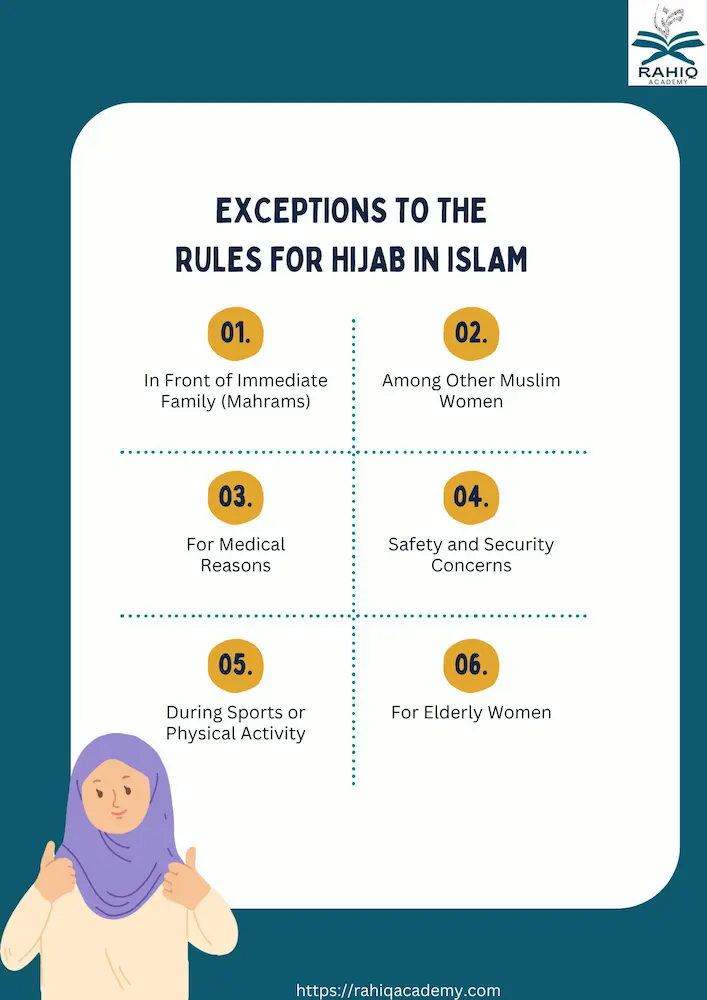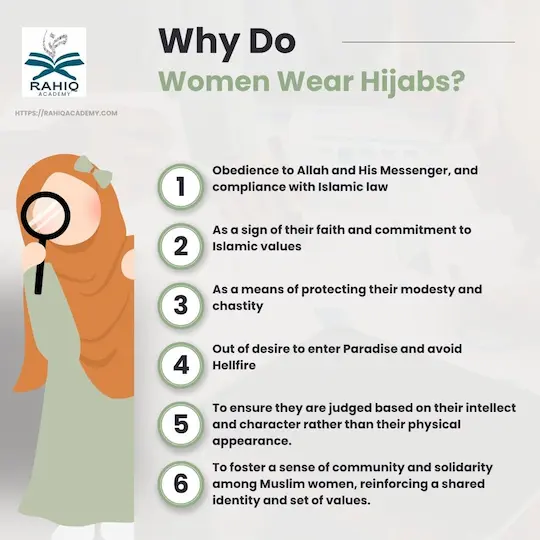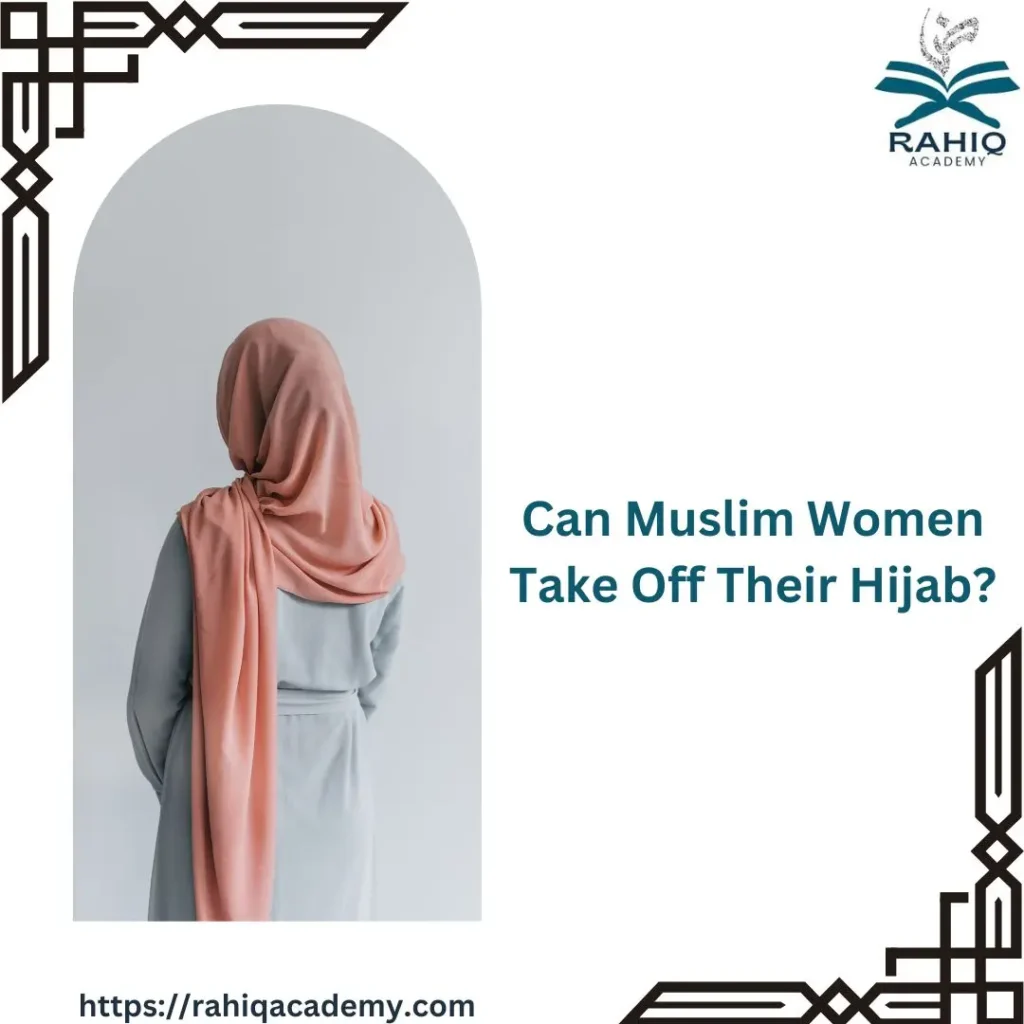Hijab, a head covering worn by Muslim women, is not just a piece of cloth; it symbolizes faith, and adherence to Islamic teachings. Wearing Hijab is a deeply personal and spiritual decision, grounded in religious duty. However, questions often arise about whether Can Muslim Women Take Off Their Hijab under certain circumstances. Understanding the significance of hijab, its requirements as outlined in the Quran and Hadith, and the situations in which exceptions might apply is crucial for both Muslims and non-Muslims alike. This article aims to explore the concept of hijab, its requirements as outlined in the Quran and Hadith
What is hijab?
The term “hijab” (حجاب) is derived from the Arabic word meaning “a barrier” or “partition.” In Islamic terminology, it signifies the modest covering that Muslim women wear in public and in the presence of non-mahram men (those who they can marry). The hijab is not limited to a headscarf but also includes modest clothing that covers the body, promoting decency and modesty in behavior, speech, and appearance. According to Islamic perspective, the hijab is more than a cultural symbol; it represents a spiritual commitment to Allah’s commands, serving as a means of protecting one’s dignity and fostering a sense of community and identity among Muslim women.
Obligatory Moments for Hijab
Hijab becomes obligatory for Muslim women upon reaching puberty and when they are in the presence of men who are not their mahrams (close male relatives whom they cannot marry). The importance of wearing hijab is emphasized in various Islamic teachings, which encourage women to cover their beauty from those outside their immediate family. This obligation is not merely a cultural practice but a religious duty, underscored by scriptural evidence from the Quran and Hadith. Islamic scholars often highlight that the hijab serves as a physical and spiritual barrier, helping maintain personal boundaries and safeguarding a woman’s modesty and dignity.
Quranic References
The obligation of wearing the hijab is rooted in the Quran, the holy book of Islam. One of the primary verses that emphasize the need for hijab is found in Surah An-Nur:
“وَقُل لِّلْمُؤْمِنَاتِ يَغْضُضْنَ مِنْ أَبْصَارِهِنَّ وَيَحْفَظْنَ فُرُوجَهُنَّ وَلَا يُبْدِينَ زِينَتَهُنَّ إِلَّا مَا ظَهَرَ مِنْهَا ۖ وَلْيَضْرِبْنَ بِخُمُرِهِنَّ عَلَىٰ جُيُوبِهِنَّ وَلَا يُبْدِينَ زِينَتَهُنَّ إِلَّا لِبُعُولَتِهِنَّ أَوْ آبَائِهِنَّ أَوْ آبَاءِ بُعُولَتِهِنَّ أَوْ أَبْنَائِهِنَّ أَوْ أَبْنَاءِ بُعُولَتِهِنَّ أَوْ إِخْوَانِهِنَّ أَوْ بَنِي إِخْوَانِهِنَّ أَوْ بَنِي أَخَوَاتِهِنَّ أَوْ نِسَائِهِنَّ أَوْ مَا مَلَكَتْ أَيْمَانُهُنَّ أَوِ ٱلتَّابِعِينَ غَيْرِ أُو۟لِى ٱلْإِرْبَةِ مِنَ ٱلرِّجَالِ أَوِ ٱلطِّفْلِ ٱلَّذِينَ لَمْ يَظْهَرُوا۟ عَلَىٰ عَوْرَٰتِ ٱلنِّسَآءِ ۖ وَلَا يَضْرِبْنَ بِأَرْجُلِهِنَّ لِيُعْلَمَ مَا يُخْفِينَ مِن زِينَتِهِنَّ ۚ وَتُوبُوٓا۟ إِلَى ٱللَّهِ جَمِيعًۭا أَيُّهَ ٱلْمُؤْمِنُونَ لَعَلَّكُمْ تُفْلِحُونَ”
Translation: “And tell the believing women to lower their gaze and guard their private parts and not expose their adornment except that which [necessarily] appears thereof and to wrap [a portion of] their headcovers over their chests and not expose their adornment except to their husbands, their fathers, their husbands’ fathers, their sons,
their husbands’ sons, their brothers, their brothers’ sons, their sisters’ sons, their women, that which their right hands possess, or those male attendants having no physical desire, or children who are not yet aware of the private aspects of women. And let them not stamp their feet to make known what they conceal of their adornment. And turn to Allah in repentance, all of you, O believers, that you might succeed.”
(Surah An-Nur, 24:31)
Another verse that emphasizes the importance of modest dress is found in Surah Al-Ahzab:
“يَا أَيُّهَا النَّبِيُّ قُل لِّأَزْوَٰجِكَ وَبَنَاتِكَ وَنِسَآءِ ٱلْمُؤْمِنِينَ يُدْنِينَ عَلَيْهِنَّ مِن جَلَابِيبِهِنَّ ۚ ذَٰلِكَ أَدْنَىٰ أَن يُعْرَفْنَ فَلَا يُؤْذَيْنَ ۗ وَكَانَ ٱللَّهُ غَفُورًۭا رَّحِيمًۭا”
Translation: “O Prophet, tell your wives and your daughters and the women of the believers to bring down over themselves [part] of their outer garments. That is more suitable that they will be known and not be abused. And ever is Allah Forgiving and Merciful.”
These verses provide a clear framework for the practice of wearing hijab, reflecting the importance of modesty and privacy in Islamic teachings.
Exceptions to the Rules for Hijab in Islam

While the general rule in Islam encourages Muslim women to wear the hijab in public and in the presence of non-mahram men, there are specific exceptions where taking off the hijab is permissible. These exceptions are grounded in the principles of ease, safety, and practicality, demonstrating Islam’s flexibility in certain situations. According to Islamic teachings, here are some exceptions to the rules for Hijab in Islam
1-In Front of Immediate Family (Mahrams)
Muslim women are not required to wear the hijab in the presence of their mahram relatives, with whom marriage is permanently forbidden. These relatives typically include a woman’s father, brothers, uncles, sons, grandfathers, and nephews. The Quran permits women to be more relaxed in their dress code in front of these individuals, as stated in Surah An-Nur, verse 31:
2-Among Other Muslim Women
A woman is not required to wear hijab when she is in the company of other Muslim women. This allowance is based on the mutual respect and shared understanding of modesty that exists among Muslim women. However, this exemption does not extend to situations where a woman might feel uncomfortable or where her privacy might be compromised.
3-For Medical Reasons

In some extremely critical medical situations that may lead to death, a woman might need to remove her hijab. However, this requires several steps that the woman must take before removing it:
a) She must consult a doctor known for trustworthiness and integrity, preferably a Muslim who understands that this decision will affect one of the obligations imposed on Muslim women. The doctor should be highly competent in their specialty to determine the severity of the illness that requires the woman to remove her hijab.
b) The woman must go to a specialized place for issuing fatwas and present the entire matter to them, including the opinion of the trusted, honest doctor who examined her.
c) After these two steps, the woman decides what she should do based on the doctor’s opinion and the fatwa she received from Muslim scholars who have sufficient knowledge to issue fatwas, such as Islamic centers and Dar al-Ifta.
It’s important to note that in our benevolent religion, human life takes precedence over anything else. Therefore, if this illness will lead to death or harm, the woman should immediately consult specialists, both doctors and scholars.
4-Safety and Security Concerns
Sometimes, in some countries, there is persecution of Muslim women who adhere to their hijab. The types of persecution here are different and varied, and not every persecution that happens to a woman because of her hijab should immediately lead her to remove it. She must first ask knowledgeable scholars capable of issuing fatwas about the matter. For example:
- If a woman is subjected to some verbal harassment because of her hijab, she should be patient, seek reward from Allah, and know that this is a test in her religion. She should be patient with this, but it should not be a reason for her to remove the hijab.
- If the persecution is in the form of drawing some caricatures mocking the hijab and veiled women, this is not one of the reasons that make a woman remove her hijab.
- Sometimes, the persecution may be in the form of harassment in studies for students. They should be patient and not rush to remove the hijab under the pretext that they are unable to study. Instead, they should look for other schools or universities that allow them to practice their educational rights without abuse.
- Some types of persecution may be physical and may sometimes lead to death by some extremists in some countries hostile to Islam and Muslims. In this case, several things are taken into consideration:
- If this persecution will be present for a period and then end, and life returns to normal, then the woman should stay at home and not go out. If she is a student, she can postpone her studies for this semester until things return to normal. If the woman goes to work, she should take leave, and her husband or guardian should take care of her and her expenses until things return to normal.
- If the persecution is continuous and this is the norm in a country, the Muslim woman must leave this country and go to another where she can practice her religion, freedom, and Sharia without being harmed or persecuted. If she is unable to leave the country and is certain that the hijab will cause her to be killed, in this case, she should go to specialized scholars, inform them of the matter, and implement the fatwa they issue. We must know that Allah Almighty has forbidden the killing of a Muslim soul and has made the preservation of the soul and self at the forefront of the priorities of our true religion.
5-During Sports or Physical Activity
It should be mentioned that some women go to gyms specifically for women only, which are supervised by women only, and there is no presence of men nearby or far away. Going to mixed gyms is religiously forbidden, and a woman who goes to mixed gyms between men and women is sinful and must repent and stop doing so.
However, if she goes to women-only gyms and there is no photography or any men present, there is no problem with that. She should take all her precautions that no man or any stranger will see her and that no other woman will photograph her. In this case, she can slightly reduce some of her hijab but not remove it completely because a woman is forbidden from removing her hijab outside her home except with her husband’s permission.
A woman must realize in all cases that this hijab is her chastity, purity, and preservation, and it preserves her beauty and chastity. She should not remove it except in her home or in a trusted place so as not to sin and not fall into harm that may cause her problems that she can do without if she adheres to her hijab in obedience to her Lord and seeking His pleasure, glory be to Him.
6-For Elderly Women
The Quran mentions elderly women in the following verse:
Arabic:
وَالْقَوَاعِدُ مِنَ النِّسَاءِ اللَّاتِي لَا يَرْجُونَ نِكَاحًا فَلَيْسَ عَلَيْهِنَّ جُنَاحٌ أَن يَضَعْنَ ثِيَابَهُنَّ غَيْرَ مُتَبَرِّجَاتٍ بِزِينَةٍ ۖ وَأَن يَسْتَعْفِفْنَ خَيْرٌ لَّهُنَّ ۗ وَاللَّهُ سَمِيعٌ عَلِيمٌ
English translation: “And as for women past child-bearing who do not expect wedlock, it is no sin on them if they discard their (outer) clothing in such a way as not to show their adornment. But to refrain (i.e. not to discard their outer clothing) is better for them. And Allah is All-Hearer, All-Knower.”
For these women, the Sharia has allowed them to remove the hijab if they are elderly, provided that they are not adorned with ornaments, as Allah Almighty has clarified in His Holy Book.
Is Wearing Hijab Mandatory?
The requirement of wearing hijab is viewed as obligatory in mainstream Islamic teachings. The commandment to cover oneself is derived from the Quran and the Sunnah (practices) of Prophet Muhammad (peace be upon him). It is considered a religious duty for Muslim women, akin to the obligation of praying and fasting.
The Prophet Muhammad (peace be upon him) said:
“إن المرأة إذا بلغت المحيض لم يصلح أن يرى منها إلا هذا وهذا”
Translation: “When a woman reaches the age of puberty, nothing should be seen of her except this and this,” and he pointed to his face and hands.
This Hadith further supports the view that wearing hijab is obligatory, emphasizing the modesty of dress for women in public spaces.
Moreover, as previously explained in the preceding elements, the noble verses of the Quran clarify the obligation of hijab. A Muslim woman who abandons the hijab without a compelling legal excuse that may cause harm is considered sinful because she has neglected an obligation that Allah has imposed upon her.
She must repent for this and wear the hijab to fulfill the duty and obligation that Allah has imposed on her, and to gain the pleasure of Allah Almighty and the satisfaction of His Prophet, peace be upon him.
In conclusion, wearing the hijab is indeed mandatory for every Muslim woman as commanded by Allah Almighty in the Holy Quran and as clarified and explained by the Prophetic Sunnah. It is a religious obligation that should be adhered to in order to comply with Allah’s commands and to seek His pleasure.
Why Do Women Wear Hijabs?

The hijab is an obligation that Allah Almighty has prescribed for women, just as He prescribed prayer, fasting, and other religious duties. The commands regarding the obligation of hijab for Muslim women who have reached the age of religious responsibility are found in the Holy Quran and the purified Sunnah.
Muslim women wear hijabs for various reasons, the most important of which are:
- Obedience to Allah and His Messenger, and compliance with Islamic law.
- As a sign of their faith and commitment to Islamic values.
- As a means of protecting their modesty and chastity.
- Out of desire to enter Paradise and avoid Hellfire.
- To ensure they are judged based on their intellect and character rather than their physical appearance.
- To foster a sense of community and solidarity among Muslim women, reinforcing a shared identity and set of values.
The hijab, therefore, is not merely a piece of cloth or traditional attire, but an act of worship and obedience to Allah Almighty and an application of Islamic law. Moreover, it serves as a means of preserving the dignity and chastity of women in society.
Conclusion
The hijab is an integral part of Muslim women’s identity and faith, and its obligation has been established by the Quran, Sunnah, and the consensus of scholars. Additionally, the hijab is a symbol of women’s chastity and protection, and it is considered a sign of their faith and commitment to Islamic values.
While there are specific situations where exceptions to wearing the hijab may apply, these are limited and should be approached with caution and proper consultation with knowledgeable Islamic scholars. The general rule remains that wearing the hijab is a religious duty for Muslim women in public and in the presence of non-mahram men.
It’s important to remember that the hijab is not just about external appearance, but also about modesty in behavior, speech, and conduct. Muslim women who wear the hijab strive to embody these values in all aspects of their lives.
In today’s diverse world, it’s crucial for both Muslims and non-Muslims to understand the significance of the hijab in Islam. This understanding can foster respect, tolerance, and appreciation for the choices Muslim women make in adhering to their faith.
Ultimately, the decision to wear the hijab should be a personal and informed choice, made with sincere intention and understanding of its religious importance. Muslim women who choose to wear the hijab should be supported and respected for their commitment to their faith, just as those who face genuine difficulties or dangers in wearing it should be guided with wisdom and compassion.
As with all matters of faith, the relationship between a believer and Allah is personal and profound. The hijab, while an outward expression of faith, is ultimately a reflection of a Muslim woman’s inner conviction and devotion to her Creator.
Follow us At Rahiq Academy to know more about islamic studies and Fiqh




